
Mauno Henrik KoivistoGOIH was a Finnish politician who served as the ninth president of Finland from 1982 to 1994. He also served twice as the prime minister, from 1968–1970 and again from 1979–1982. He was also the first Social Democratic Party member to be elected President of Finland.

Taisto Kalevi Sorsa was a Finnish politician who served as Prime Minister of Finland three times: 1972–1975, 1977–1979 and 1982–1987. At the time of his death he still held the record for most days of incumbency as prime minister. He was also a long-time leader of the Social Democratic Party of Finland.
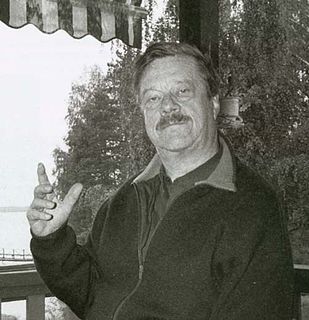
Kari Yrjänä Suomalainen was Finland's most famous political cartoonist, known as Kari. His cartoons appeared daily in Helsingin Sanomat from 1951 to 1991 and they became popular throughout the nation. While most of them comment on current politics, some are based on everyday life. Suomalainen received many awards for his work, including the National Cartoonist Society (US) award in 1959, Puupäähattu in 1984 and Pro Finlandia in 1989. He was also appointed honorary professor in 1977.

"Reggae OK" was the Finnish entry in the Eurovision Song Contest 1981, performed in Finnish by Riki Sorsa.
Parliamentary elections were held in Finland on 18 and 19 March 1979.
Parliamentary elections were held in Finland on 20 and 21 March 1983. The elections were widely regarded as a "protest election" because, contrary to expectations, the major parties with the exception of the Social Democratic Party (SDP) performed poorly; the Liberal People's Party (LKP) lost all its seats in the Eduskunta, while the Finnish Rural Party (SMP) more than doubled its seat tally and the Greens won seats for the first time. The SMP's success was credited, at least in part, to voter distaste for some mainstream parties because of political scandals; no significant policy differences emerged in the election campaign. The SDP won 57 seats, the best performance by a party since World War II.
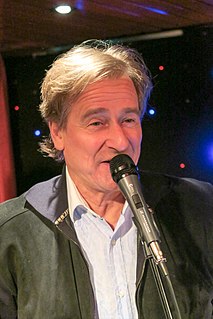
Richard Esko "Riki" Sorsa was a Finnish pop singer. He started his career in 1974 as the lead singer in the band The Zoo. He represented Finland in the Eurovision Song Contest 1981 with the entry "Reggae OK", a reggae influenced song in Finnish which came 16th. The song was composed by Jim Pembroke, the lyrics were written by Olli Ojala, and it was conducted by Otto Donner. Sorsa released several albums, singing in Finnish, Swedish, and English. Sorsa died of cancer on 10 May 2016.
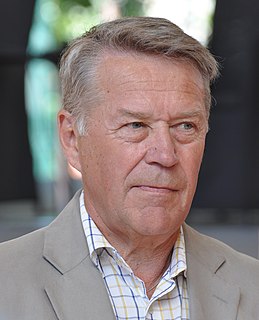
Matti Allan Ahde was a Finnish politician from the Social Democratic Party.

Eino Oskari Uusitalo was a Finnish politician from the Centre Party.
Kari Kuivalainen is a Finnish singer-songwriter, best known for his participation in the 1986 Eurovision Song Contest.
Toivo Kivimäki's cabinet was the 20th government of Republic of Finland. Cabinet's time period was from December 14, 1932 to October 10, 1936. It was Minority government. Many of the neutral ministers were members of the National Coalition Party without formal support of the party. Cabinet fell in 1936 by the interpellation of the opposition after its bill to reinstate the capital punishment had failed to pass. Kivimäki's cabinet was the longest government in Finland until 1987 Kalevi Sorsa's fourth cabinet.
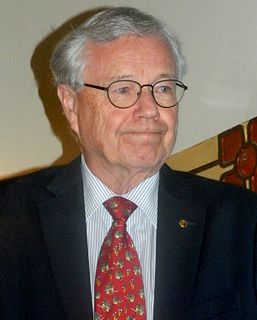
Matti Kalevi Louekoski is a Finnish politician and a lawyer as profession. He is a member of the Social Democratic Party of Finland (SDP) and a former long-term member of the governing board of the Bank of Finland.

Arvo Jaakko Henrikki Salo was a Finnish writer, journalist and politician. He served as an MP from 1966 to 1970 and from 1979 to 1983 and was Minister of Education and Culture from 1982 to 1983 in Kalevi Sorsa's third cabinet.
Finland was represented by Riki Sorsa and the song "Reggae OK" at the 1981 Eurovision Song Contest, which took place on 4 April in Dublin. Sorsa won the rights to represent Finland on the 21 February.

The first cabinet of Kalevi Sorsa was the 56th government of Finland. The cabinet's Prime Minister was Kalevi Sorsa. The cabinet was in office from 4 September 1972 to 13 June 1975.

The third cabinet of Kalevi Sorsa was the 62nd government of Finland. The majority government lasted from 19 February 1982 to 6 May 1983. The cabinet's prime minister was Kalevi Sorsa. The Finnish People's Democratic League disapproved of the government's decision to raise the country's defence budget, which led to a governmental crisis, which culminated in the FPDL being forced to resign from the government by the prime minister on 31 December 1982. As a result of the change, the Liberal People's Party joined the coalition and, together with the rest of the previous government, formed the Sorsa IIIb Cabinet.

Sorsa's fourth cabinet was the 63rd government of Finland, which existed for 1 456 days, from 6 May 1983 to 30 April 1987. The government’s Prime Minister was Kalevi Sorsa. It was a majority government based on the ”red-soil government” model, as it was a coalition formed by the Social Democrats, the Centre Party, the Swedish People’s Party, and the Rural Party.
Matti Juhani Puhakka was a Finnish politician representing the Social Democrats.
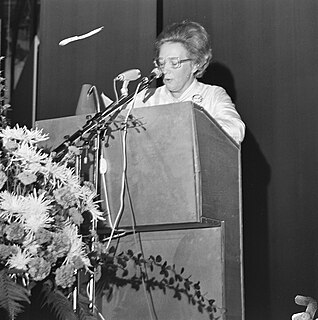
Marjatta Väänänen was a Finnish politician who was a Member of Parliament for the Centre Party from 1975 to 1991. She served as Minister of Culture, Minister of Education, and Minister of Social Affairs and Health.

Pirjo Anneli Ala-Kapee-Hakulinen is a Finnish politician who was the minister of education in the fourth cabinet of prime minister Kalevi Sorsa from 1986 to 1987. A member of the Social Democratic Party, she was also a member of the Finnish Parliament from 1979 to 1989.
This page is based on this
Wikipedia article Text is available under the
CC BY-SA 4.0 license; additional terms may apply.
Images, videos and audio are available under their respective licenses.











